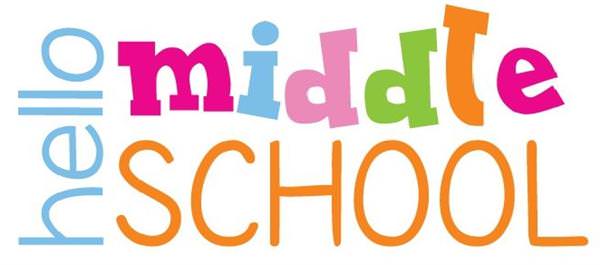Middle School /Junior High Transitions
Does one cry, laugh, or hold one’s breath when a child is approaching that age of puberty?
![]()
What can be done when hormones, changes in attitude, and physical development are all on a collision course within a 12 – 15 yr old body? The answers are dependent on who the child is,
what roles adults have in that child’s life, and possibly how much of a sense of humor, compassion, or understanding the adult has while dealing with the child going through a middle school or junior high transition.
Beginning middle school or junior high can be a bittersweet event for the tween who has been waiting to leave the younger grade schoolers behind and become part of the big leagues. Unlike the grade school transition this one may be met with outside bravado to parents, friends, and family and internal fear when the tween walks along the big hallways or forgets a locker number, or can’t figure out how to get to the science wing ending up in the 8th or 9th grade hallway.
What parents can do!
Reflect on the last school year of the tween and answer the following questions?
- Did the child have an opportunity to see the middle or jr high during a typical school day and what was his/her reaction at that time?
- How did the school district orient the tween to the next level of education (carnivals, young ambassadors visit elementary school, 5th or 6th graders visit upper level for a day, virtual on-line tours, or parent information nights)?
- How have conversations in June related to getting to the next level of middle school or jr high changed now that school is ready to begin?
If the answers to the reflections were that nothing was done to orient the child – then both parent and child must be proactive in finding a comfortable and trusting way of sharing the concerns of being the new kid on the block and discuss the possible pleasures and pitfalls that may lie ahead. District resources would include the guidance counselor, principal, school nurse, homeroom teacher, and the many other subject area teachers within the school. Although the baton may have been dropped before the beginning of school, there are many pathways to ensure smooth sailing as the year progresses.
If the answers to the reflections were all positive and the tween is experiencing mood swings or a reluctance to attend – more probing is necessary as an outlying event may have occurred such as bullying, a cut-off friendship, or a hidden fear has lessened self-esteem. It is important to pay attention to these young tweens, as social pressures, and the longing to fit in and not knowing how, may lead to some depressive behavior that must be addressed. It is especially important to have children at this age meet with their family doctor to track social/emotional and physical development during these early teen years.
Creating the Best Fit!
Tween years require personal patience and perseverance in tolerating ambiguity, changes in body structure, voice, unwelcome acne, and the internal fight of not wanting to listen to adult advice when constructive advice is needed more than ever. These young people have not lived enough days to have mastered the strategies of hormonal control, or requesting to their superiors (teachers) that their desks be larger or chair unattached from the desk due to their 8″ growth spurt over the summer, or how to master learning from approximately 7 teachers in various content areas as opposed to the one or three that they had in grade school. Tweens need help!
Transitions do not happen overnight and tweens, like anyone, benefit when they are reminded that change which may seem uncomfortable may be an indicator of growth and clear skies ahead. Not that reminders of past growth make the current discomfort any easier, however, those previous successful turning points in a child’s life may be what they need to reflect on while facing the current cloudy situation.
Be Mindful, Sensitive, Supportive, and Communicate or Defer to Others!
Some parents forget what it was like growing up and believe if they tell their child to snap out of it and grow up it will magically happen. The tween may view this as the nagging parent role when their basic need is to have a guide, mentor, or just someone to listen without judging. Certainly some parents instinctually want to solve problems for their child and make everything pain-free and easy – however, there is much research to support that young people who have not learned how to struggle academically or socially may develop a fixed mindset which restricts their views and beliefs in self versus a growth mindset.
If communication is not a strong point in the parent/tween relationship, the parent must defer to someone who the tween respects and can talk to, be it sibling, favorite relative, life coach … or trusted teacher. The key is for the tween to feel heard, valued, and know that he or she is being supported. Once the tween has built a support network and has downloaded concerns and beliefs, it is up to the tween to work with his or her support partner and create an action plan to move forward.
Transitioning may or may not be easy for some tweens, however, it is a critical time in their young lives to become accountable in accepting challenges, and understand that with choices there are consequences. Middle school and junior high years are precious to everyone, one just never realizes it until he/she is probably 30 or 40 years old.


1unitarian